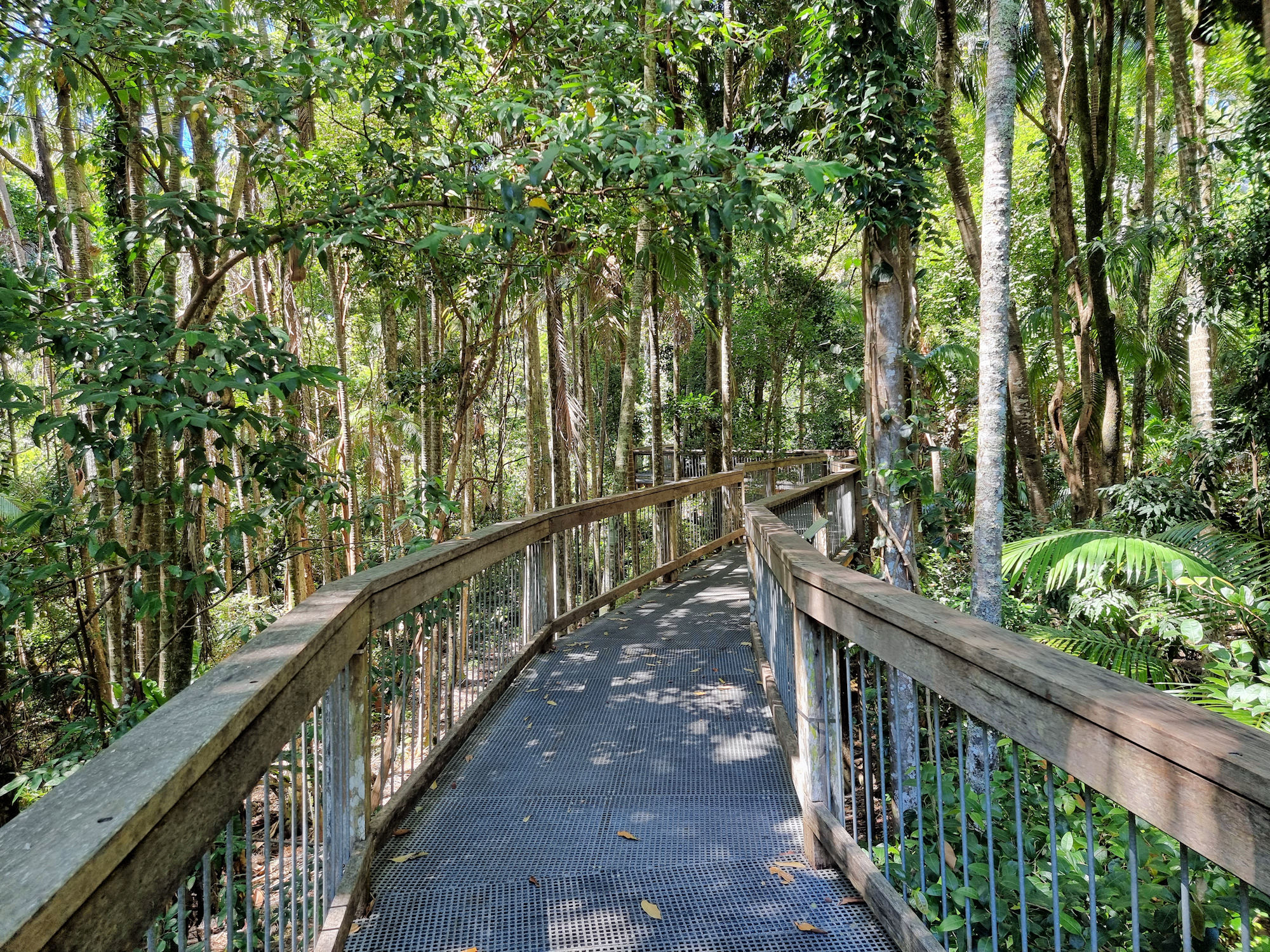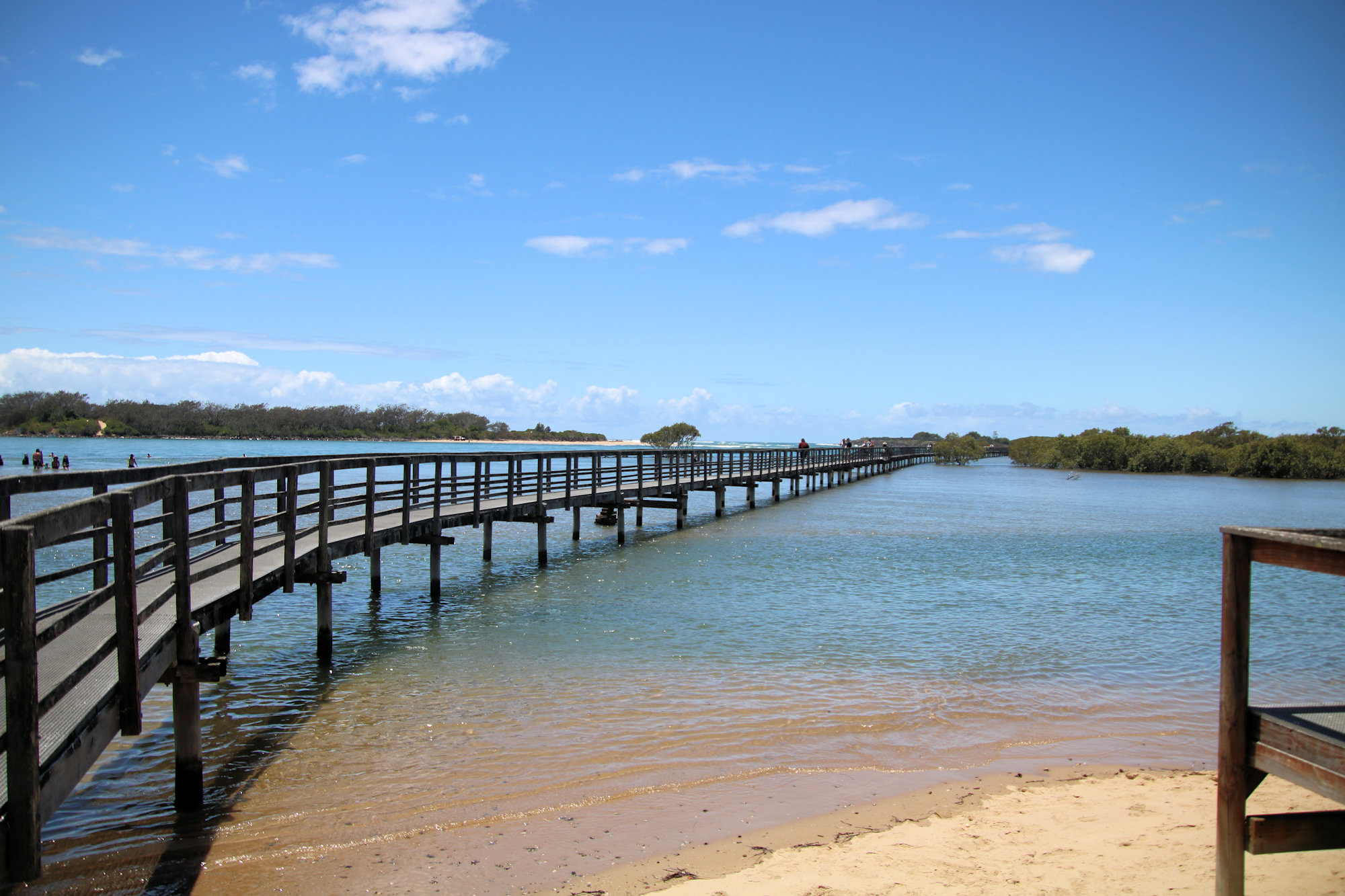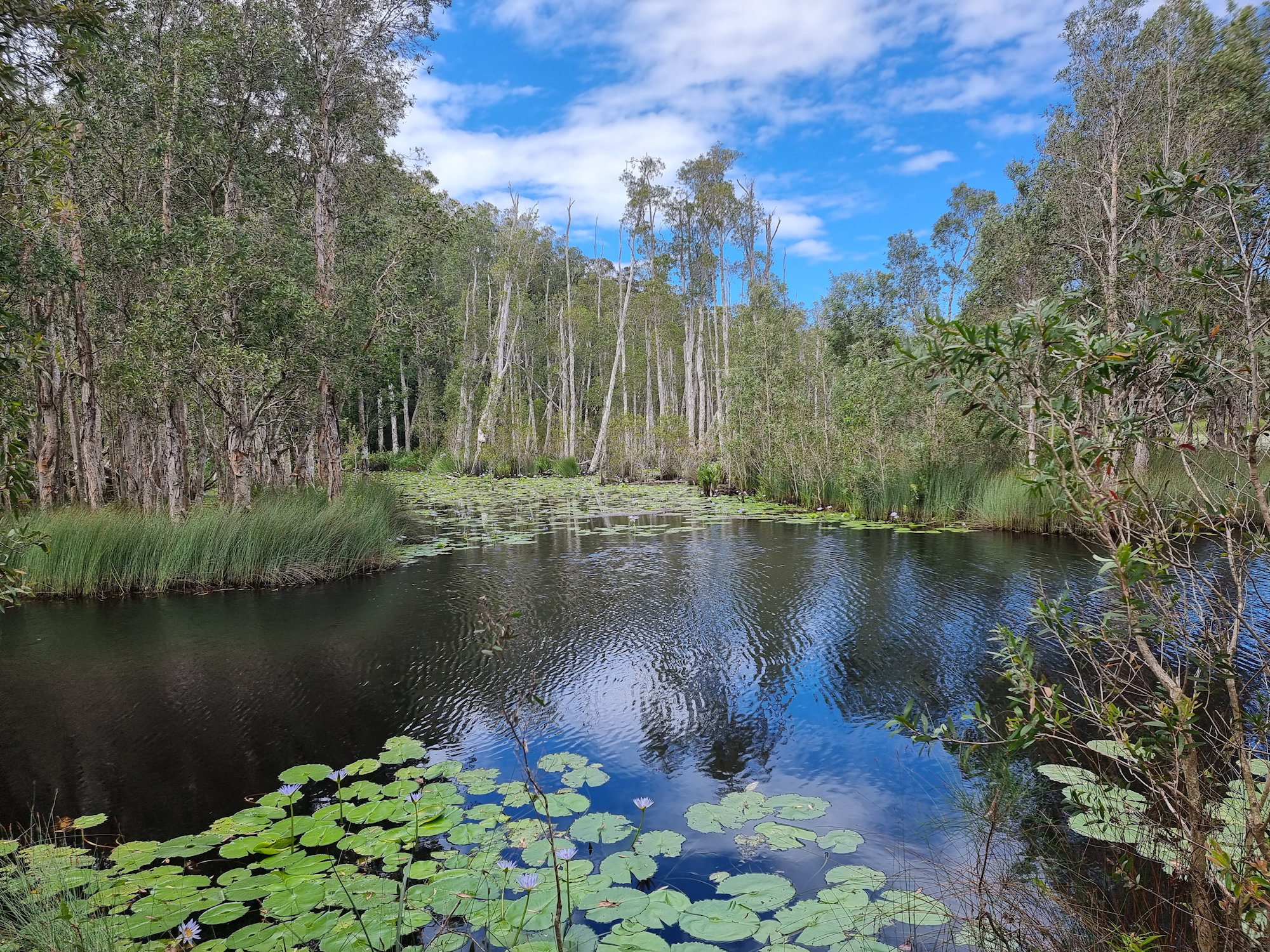Tag: Boardwalk
-
Sea Acres Rainforest Boardwalk

Sea Acres Rainforest Boardwalk Taking you through the rainforest canopy, the Sea Acres Rainforest Boardwalk is a 1.3km loop that starts and ends at the Sea Acres Rainforest Centre. Unfortunately, when we visited (December 2022), maintenance on the boardwalk cut the loop because of storm damage. This was not too much of a problem because… Read more
-
Urunga Lagoon Footbridge

Urunga Lagoon Footbridge Located in Urunga on the NSW mid-north coast, the Urunga Lagoon Footbridge is a 1km long walkway through mangroves to the Pacific Ocean. Commencing in 1988, construction continued in three stages, until final completion in 2010. This wheelchair friendly walk is a great way to experience the coast from a sheltered lagoon… Read more
-
Urunga Wetlands Boardwalk

Urunga Wetlands Boardwalk The Urunga Wetlands and Boardwalk are the result of a ten million dollar project to rehabilitate an old mining processing plant. The result is a beautifully restored wetland and the containment of the tailings and their heavy metal content. History of the Site In 1969, Broken Hill Antimony Pty Ltd established an… Read more